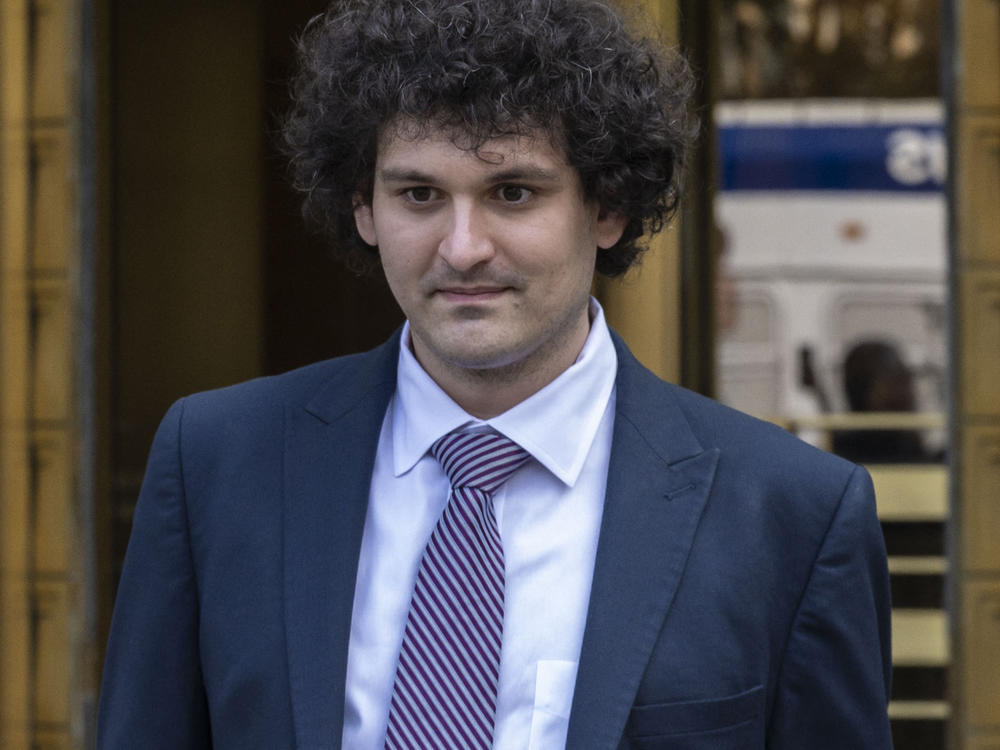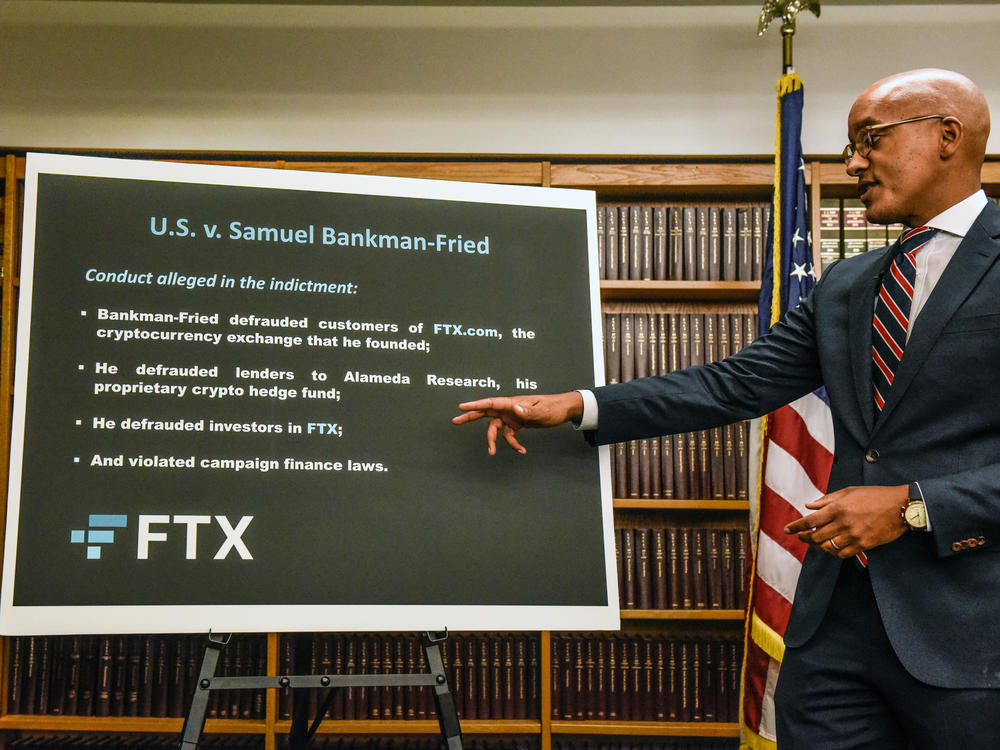Georgia High School Musical Theatre Awards at 8p
Section Branding
Header Content
Former FTX CEO Sam Bankman-Fried ordered to jail after judge revokes his bail
Primary Content
Sam Bankman-Fried, the former FTX CEO, was ordered to jail on Friday after a judge revoked his bail for alleged witness tampering.
The disgraced crypto mogul had been living under house arrest at his parents' home in Palo Alto, Calif., after posting an eye-popping $250 million bond.
Bankman-Fried, widely known as SBF, was awaiting a trial set to begin on Oct. 2 after being charged by the U.S. government last year of orchestrating one of the largest financial frauds in history. The former crypto star faces the prospect of spending the rest of his life in jail if convicted of those charges.
But government prosecutors had sought to revoke his bail and have SBF sent to jail until his trial after accusing the FTX founder of witness tampering.
Prosecutors accused SBF of leaking private diary entries of his former girlfriend, Caroline Ellison, to The New York Times.
Ellison was the former head of Alameda Research, a hedge fund SBF co-founded. After pleading guilty to fraud charges herself, Ellison was likely to testify against Bankman-Fried in court.
On Friday, the U.S. District Court Judge Lewis Kaplan sided with prosecutors and ordered SBF detained, saying the FTX CEO had tried to intimidate witnesses and taint the jury pool.
"There is probable cause to believe that the defendant has attempted to tamper with witnesses at least twice," Kaplan said at the hearing according to media reports.
SBF's lawyers have appealed the decision.
Talking to media
The alleged leak of Ellison's diary, which included reflections on her relationship with Bankman-Fried and some of her professional misgivings, was the last straw for prosecutors.
Hours after the Times posted the piece, the prosecution filed a formal request with the judge to modify SBF's bail terms. They argued that by leaking the documents the defendant hoped "to portray a key cooperator testifying against him in a poor and inculpatory light."
It was an attempt, they said, to "intimidate and corruptly persuade Ellison with respect to her upcoming trial testimony, as well as an effort to influence or prevent the testimony of other potential trial witnesses by creating the specter that their most intimate business is at risk of being reported in the press."
Prosecutors claimed the article in the Times was the latest in a string of examples of Bankman-Fried flouting the terms of his bail agreement, including talking to other media.
Prosecutors highlighted how many conversations the defendant has had with reporters since he was charged.
They said Bankman-Fried has participated in more than 1,000 phone calls with journalists, including more than 500 with the author Michael Lewis, who is writing a book about Bankman-Fried.
Bankman-Fried's attorneys unsuccessfully argued against his detention on First Amendment grounds, and in separate filings, The New York Times Company and the Reporters Committee for Freedom of the Press suggested the decision to jail the defendant could have a chilling effect on free speech.
SBF's lawyers had also argued that jailing his client would make it harder to defend himself against government charges given the huge amount of material they needed to confer on with their client.
Last month, Judge Kaplan had imposed a temporary gag order on SBF as he sought to decide on the accusations of witness tampering.
Copyright 2023 NPR. To see more, visit https://www.npr.org.


